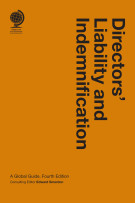Surviving the economic impact of Coronavirus
18 March 2020

Author bio coming soon
Alan Tilley, Chairman at Bryan Mansell & Tilley LLP, explains in his latest blog post how forearmed is forewarned and makes for better decision making.
The economic consequences of the Coronavirus epidemic have heavily impacted stock markets worldwide as investors quantify and manage the risks in underlying businesses often by quickly disposing of their investments. Whilst investors can liquidate their positions quickly the challenges for business managers run deeper. Decisions take longer to impact results and can be overturned by the unpredictability of the crisis. Most businesses will be impacted in some way and for many it will take management teams into new territory, the “zone of insolvency”. The speed with which they react and the actions they take will often be the difference between survival or failure.
Managing the balance between measured reaction and overreaction will be important. Not all businesses will be as exposed as others. An analytical approach to risks is essential. Risks to the market in which the business operates, risks to its customers and their ability to pay, and risks to suppliers and their ability to maintain supplies. There are risks also to the health and availability of employees, to their family obligations and to the health of management itself. In a fast-changing environment analysis needs to be flexible and constantly challenged and reappraised.
Outside of food, healthcare and those businesses with long term contracts and order books, most businesses will suffer a sharp revenue decline. Cost control, the elimination or deferment of all non-essential services, is an obvious starting point. Employee numbers too must be considered and the options of short time working balanced against the cost and cash burn of redundancies and the impact of lost and valuable skills. Flexibility must be built in to manage the possibility of employee sick leave. Remote or part time working and flexible hours for those employees with children or elderly dependant relatives need consideration. This crisis will be over one day so sympathetic consideration of employee circumstances will be an investment in loyalty if it can be achieved within an overall survival plan.
But key to survival is cash management. Nobody knows how banks will react, nor what government or other support will be available. The collapse into insolvency of FlyBe is a sobering precedent. Governments have their political doctrines and priorities which drive decision making. Banks have their own business models to protect and the history of their response to the post Lehman Brothers crisis in UK is a warning, especially to smaller businesses. Nothing has changed in UK insolvency law since the exposure of the RBS GRG excesses which would prevent a repeat of those abuses. Understanding of pre and post insolvency processes and the pitfalls and elephant traps that await the naïve and unwary business manager is essential.
Management should seek experienced business survival advice, and in the first instance on the commercial as well as financial issues and the steps to take to avoid falling deep into the zone of insolvency. There, events become difficult to control. In parallel, legal advice on directors’ liabilities should be taken. Seeking pre crisis operational and financial management advice is not a reflection on poor management skills. It is much as one would seek specialist advice on a tax or IT issue. Stopping the slide downwards is a skillset of its own borne from training and experience in similar circumstances. It may be the difference between survival and corporate death by insolvency. Make no mistake, insolvency in UK is not a process for business survival. It has become a process of shifting assets from shareholders to secured creditors or opportunist distressed investors. Shareholders almost certainly lose everything, employees lose their livelihood, and trade creditors rarely receive more than a few pence in the pound.
Advice should be impartial and conflict free. Financial professionals who practise across the divide of turnaround restructuring advice and insolvency practice can be conflicted. Whilst the concept of “Chinese walls” may be cited, internal firm pressures to generate revenues from less risky and higher fee insolvency work can affect that advice, as has happened in some recent reported cases. Seek out experienced professionals who solely practise turnaround restructuring to navigate away from cash pressure and avoid the insolvency trigger of lack of liquidity. And understand that such processes as Creditor Voluntary Arrangements (CVA’s) and pre-pack insolvencies, whilst they have their uses, are both difficult to achieve in a recessionary environment and less successful than a turnaround achieved by early management actions and consensual arrangements with other stakeholders.
Time is short and businesses must react now. As a start management should invest in some of the number of books and articles available that can quickly be absorbed to get an understanding of the processes to better assess appropriate advisors. Most professional firms have some guides to their range of available services. Globe Law and Business has published editions on Directors’ Liability and Indemnification in international jurisdictions, essential reading for those companies with overseas subsidiaries or exposure, and my own book, Turnaround Management - Unlocking and Preserving Value in Distressed Businesses, both noted below. My own firm has written a guide on Turnaround Management for the Institute of Chartered Accountants in England and Wales Corporate Finance Faculty, available to download on www.bmandt.eu. Forearmed is forewarned and makes for better decision making. There will be casualties both human and business from this crisis, but professional advice is available, and the survivors will be those that react quickest and with the best knowledge and best professional support.
Alan Tilley is Chairman at Bryan Mansell & Tilley LLP and author of Turnaround Management - Unlocking and Preserving Value in Distressed Businesses.













Any comments - send us an email